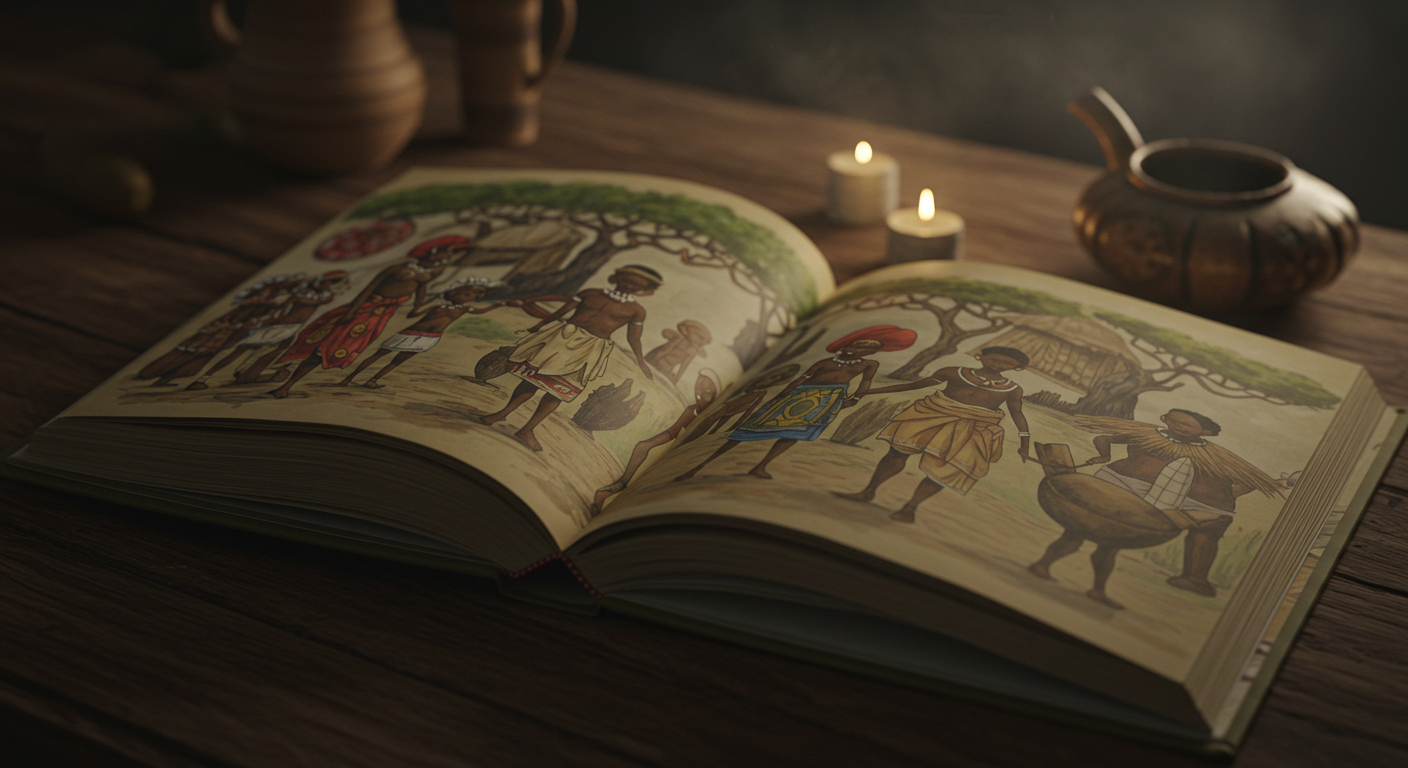Children's books play a critical role in shaping how young minds see the world — and themselves. For African children, and children of African descent around the globe, representation matters. Books that feature African characters, languages, landscapes, and traditions not only validate young readers’ identities but also introduce others to the continent’s rich cultural tapestry. In recent years, a growing number of authors, illustrators, and publishers have stepped forward to create children’s literature that celebrates Africa in all its diversity — from folktales and festivals to everyday family life.
Why Representation in Children’s Books Is Vital
Research has long shown that children’s books that reflect diverse cultures:
- Foster self-esteem and pride in cultural identity.
- Combat stereotypes and promote empathy.
- Encourage curiosity and cultural awareness in all readers.
- Act as tools of language and heritage preservation.
For too long, African characters were either invisible or shown only through the lens of struggle and poverty. The new generation of African authors is shifting that narrative — showing children as explorers, dreamers, scientists, siblings, and superheroes in vibrant African settings.
Top Children’s Books That Celebrate African Cultures
1. “Sulwe” by Lupita Nyong’o (Kenya)
Academy Award-winning actress Lupita Nyong’o wrote “Sulwe” as a love letter to young girls who struggle with colorism and self-image. Sulwe, the protagonist, has skin “the color of midnight” and feels out of place in a world that values lighter skin. Through a magical journey, she learns about beauty, identity, and self-love. With lush illustrations by Vashti Harrison, the book is both empowering and visually stunning.
2. “Baby Goes to Market” by Atinuke (Nigeria)
Written by Nigerian author Atinuke and illustrated by Angela Brooksbank, this delightful picture book follows Baby and Mama through a vibrant West African market. As Mama shops, Baby sneaks tasty treats from the generous market vendors. The rhythm of the story and the lively images introduce young readers to the colors, sounds, and flavors of African market life.
3. “I Am Enough” by Grace Byers (Caymanian-American of African descent)
While not strictly set in Africa, this affirming book features diverse characters and celebrates Black girlhood in all its joy and complexity. It’s an anthem of self-worth, kindness, and confidence that resonates strongly with African and diasporic readers.
4. “Jambo Means Hello: A Swahili Alphabet Book” by Muriel Feelings (East Africa)
Winner of a Caldecott Honor, this classic picture book teaches children the Swahili alphabet with terms rooted in East African life — like chakula (food) and uhuru (freedom). It’s both educational and cultural, blending language, values, and identity into a poetic alphabet journey.
5. “Nelson Mandela” by Kadir Nelson (South Africa)
This beautifully illustrated biography introduces children to the life of Nelson Mandela — from his rural childhood to his role as South Africa’s first Black president. Kadir Nelson’s expressive artwork and accessible storytelling bring history to life for young readers, sparking conversations on justice, freedom, and leadership.
6. “The Children of Africa” series by Deborah Ahenkorah & Golden Baobab (Various Countries)
Deborah Ahenkorah, a Ghanaian literary activist, founded Golden Baobab to spotlight African voices in children’s literature. Their books — like “The Girl with the Louding Voice” and “Kofi and the Talking Drum” — are pan-African treasures that reflect local customs, folklore, and contemporary issues.
African Folktales for the Modern Child
Folktales are central to African storytelling culture — rich with moral lessons, animal tricksters, and supernatural beings. Modern adaptations are preserving these stories while making them accessible to new generations:
- “Why Mosquitoes Buzz in People’s Ears” by Verna Aardema: A West African tale told through a chain of animal miscommunications, with stunning illustrations rooted in batik-style artwork.
- “Anansi the Spider” retellings: The iconic Ashanti spider-trickster appears in many child-friendly adaptations that teach wit, courage, and problem-solving.
- “Zomo the Rabbit” by Gerald McDermott: A Nigerian folktale filled with rhythm and humor about a rabbit who learns that wisdom must be earned.
Celebrating Language and Multilingualism
Children’s books in African languages — or bilingual editions — are gaining traction. They support early language development and help children maintain a connection to their mother tongue. Publishers like Book Dash, Cassava Republic, Ouida Books, and African Storybook Initiative offer:
- Picture books in Yoruba, Zulu, Hausa, Shona, Amharic, and more.
- Stories that reflect local idioms, settings, and family structures.
- Tools for language-learning both in Africa and among diaspora families.
Themes That Resonate in African Children's Books
- Family and Community: Emphasis on aunties, elders, and extended family is a recurring motif.
- Festivals and Celebrations: Stories about Eid, Christmas, New Yam Festival, and Independence Days bring cultural traditions to life.
- Nature and Environment: Many books highlight African animals, plants, and climate with conservation messages.
- Courage and Dreams: From girls becoming engineers to boys learning to cook, these books expand what’s possible.
Resources and Publishers to Know
If you're looking to build an Afrocentric children’s library or blog recommendations for parents and educators, consider these resources:
- Golden Baobab Prize: A literary prize focused on African children's literature.
- African Storybook Project: Open-access books in multiple African languages.
- Book Dash (South Africa): Free-to-access, beautifully illustrated books created by African authors and artists.
- OkadaBooks and Bambooks (Nigeria): Apps with digital children's books from African authors.
- Akili and Me (YouTube): An educational animation series teaching Swahili, numbers, letters, and values.
Conclusion: Storybooks as Bridges
Children’s books that celebrate African cultures serve as bridges — connecting children to their roots, their families, their communities, and the world. Whether you’re a parent raising a child in Nairobi or New York, these stories spark pride, curiosity, and imagination.
By putting African names, foods, languages, and heroes at the center of children’s literature, we’re nurturing not just readers — but future leaders who know who they are and where they come from.



